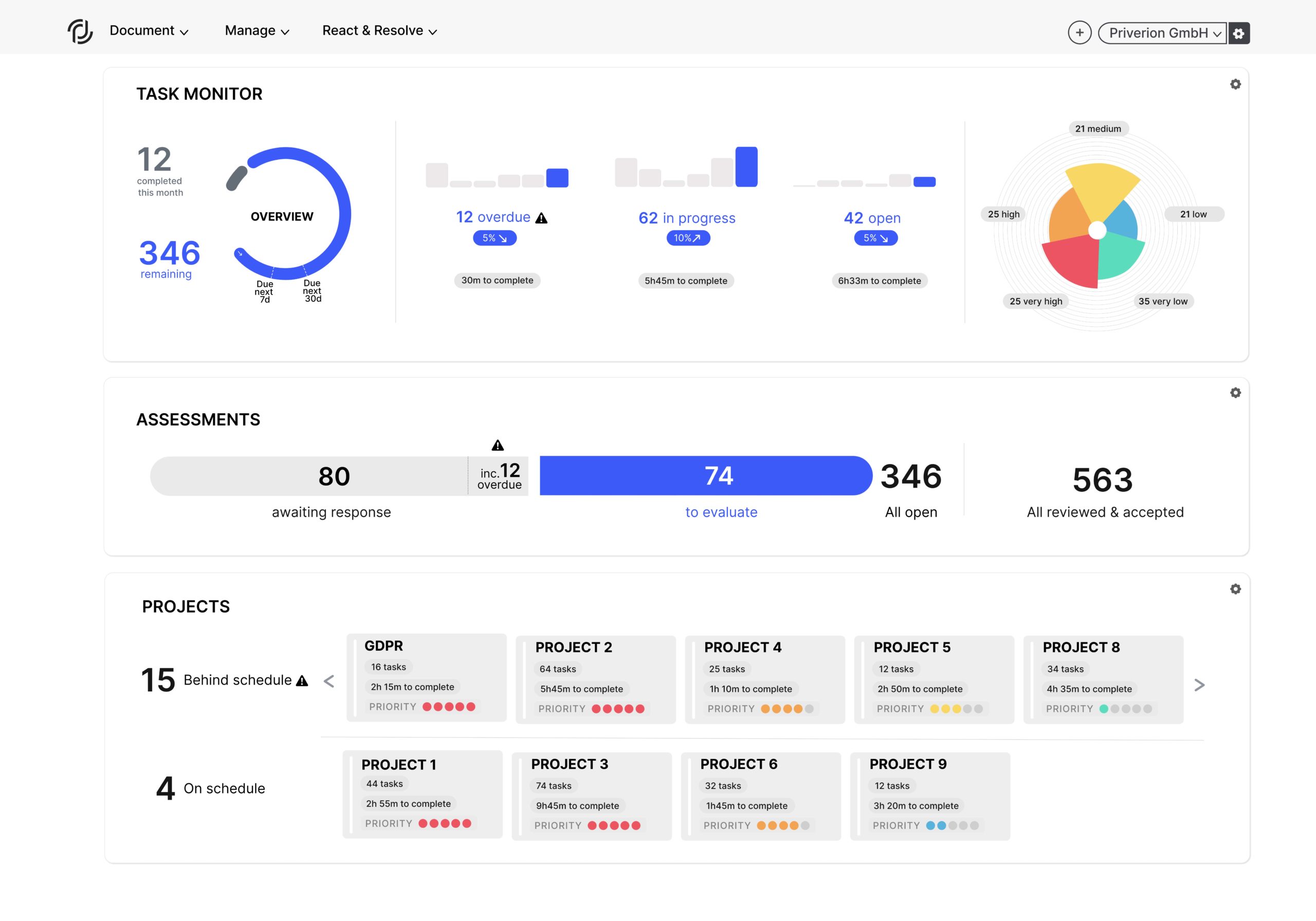Mit unseren Datenschutzmodulen erhalten Sie alle notwendigen Elemente der Datenschutzkonformität aufrecht.
Erfahren Sie mehrDokumentieren
Verzeichnis der Verarbeitungstätigkeiten (VVT)
Datenschutz-Folgenabschätzungen (DSFA)
Berichte & Downloads
Dokumentation ihres berechtigten Interesses
Aufbewahrungs- und Löschfristen
Automatisierte Entscheidungsfindung & KI
Technische & organisatorische Massnahmen (TOM)
Bewertungen (Assessments)
Lieferanten (Vendors)
Richtlinien (Policies)
Datenerhebungspunkte
Datenschutzportal (Privacy Center)
Meetings und Aktivitäten
Verwalten
Projekte
Lieferantenrisiken
Prozessrisiko
Datenschutzaudit
Reagieren
& Lösen
Aufgaben
Projekte
Vorfallmanagement (Incident)
Anfragen betroffener Personen (DSR)











